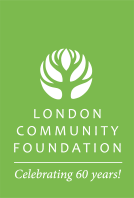Have you ever heard the expression, “Somebody ought to do something about that?”
Public participation, community engagement - it goes by various names, but the fact is the process of citizens getting involved is the fuel that runs successful democracies.
Increasingly, somebody in London is doing something to better life in the city for all of us. If that somebody isn’t you, there are still a lot of opportunities to help.
Some call participating in our community’s affairs our responsibility as residents of London, although those people who’ve actually done it often say it was a privilege.
It is work. It can be fun too. And if you get fulfillment being part of something that leads to more inclusive decision making, then it can be rewarding too.
And best of all, getting involved in the democratic processes of your community is free. Well mostly. It does take time, and you might have to shell out for coffee.
The good news is more Londoners are realizing this. ReThink London, the recent forums to create a new Official Plan drew more than 10,000 participants over its two-year lifespan and became one of the most successful citizen engagement events for a planning issue in Canadian history.
The result is we now have a blueprint for this city’s future that has broader public support than ever before. While it makes some recommendations that are controversial, the new London Plan has garnered support from almost everyone on city council and a majority of candidates in the coming election. Politicians are loathe to go against public opinion when it’s expressed in large numbers.
That’s often - although not always - the benefit of successful public engagement exercises. They can cause real change, often change that previously was thought impossible.
A good example of that is the recent drama over a city grant to Fanshawe College to buy the Kingsmill’s department store property downtown to house its hospitality and information technology faculties. Council originally rejected the proposal but a public social media campaign helped change council’s mind.
Not every citizen engagement opportunity is as esoteric as building your city. For example London became one of the first Canadian cities to be certified by the United Nations as ‘seniors friendly’ because of the work of a task force of local residents. Their many recommendations about everything from bus service to traffic lights to parks are now being implemented.
London also has a developing strategy to make its neighbourhoods stronger and more distinct, the result of another citizen task force that worked for a year on solutions.
And even when they fail, participants usually find the experience of meeting fellow citizens from different sections of town and different walks of life stimulating and enriching. Some strong and unusual friendships have been formed over debates about cul-de-sacs.
Not every citizen engagement must be on such a grand scale. At the neighbourhood level, there are often community associations that focus on very local issues. One in SoHo - that’s south of Horton - got organized because a developer planned a 26-storey high rise smack in their middle. The developer seems to have disappeared, but the group continues to meet regularly as plans for the revitalization of the old hospital lands emerge.
There’s probably such an association in your neighbourhood just waiting to welcome your ideas.
Still, the pity is more people in London don’t get involved. In the last civic election, for example, of the 262,028 residents who were eligible to vote only 104,593 bothered to make the short trek to their nearby polling station.
And yes you’re right; somebody ought to do something about that.
Hey, aren’t YOU somebody?


